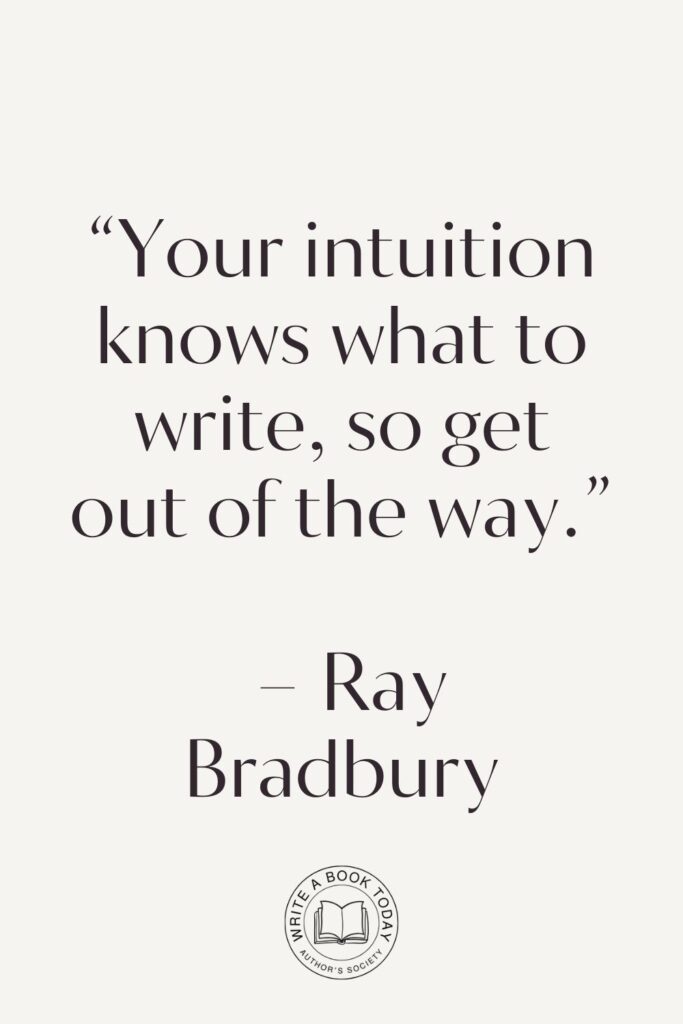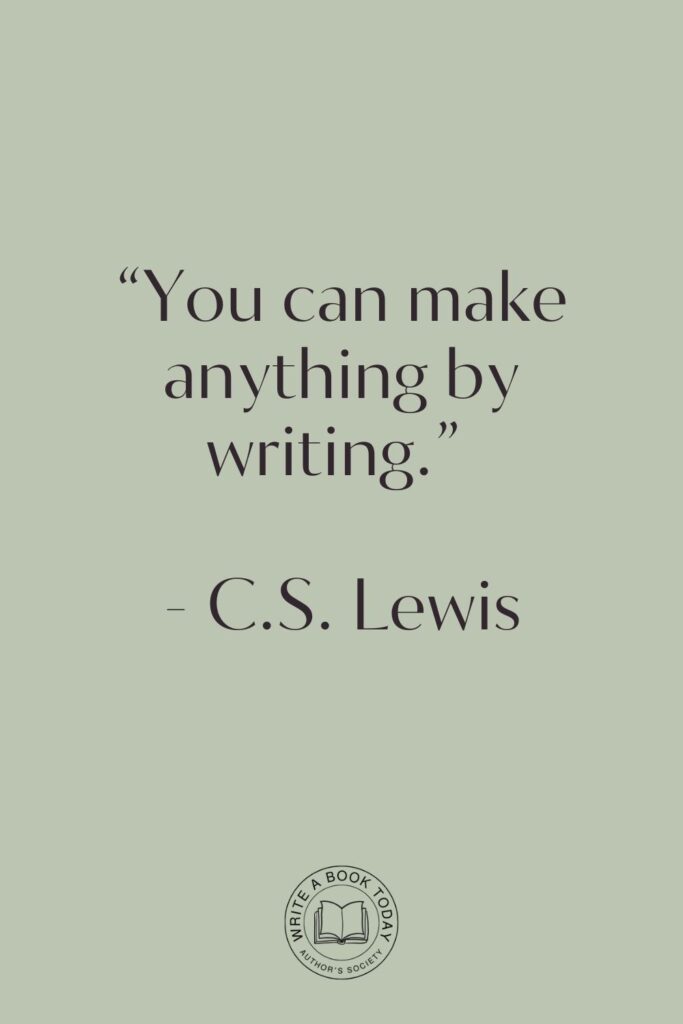Have you ever stared at a blank page, fingers hovering over the keyboard, only to find that your mind is just as blank? Or perhaps you’ve felt that sinking feeling of inadequacy as you compare your work to others, questioning whether you should even bother writing at all. You’re not alone.
Many writers, from novices to seasoned authors, grapple with writer’s block and self-doubt. But fear not—this guide is here to offer a comforting hand and practical advice to help you navigate these challenges.
Together, we’ll explore the roots of these common struggles and uncover strategies to keep your creative juices flowing.
Understanding Writer’s Block
Writer’s block is a term that many of us have heard, but what does it truly mean? At its core, writer’s block is a condition where a writer is unable to produce new work or experiences a creative slowdown.
It can strike unexpectedly, leaving one feeling frustrated and unproductive. But understanding what it is can be the first step towards conquering it.
What is Writer’s Block?
Writer’s block is more than just a temporary pause in creativity; it’s a complex psychological condition that can arise from various factors. Imagine standing at the edge of a dense forest, knowing that somewhere within lies a path to your story, but unable to see it through the thick fog of doubt and distraction.
Writer’s block can feel like this—a barrier between your thoughts and the paper. Interestingly, writer’s block doesn’t discriminate.
Whether you’re penning a novel, crafting a blog post, or working on an academic paper, this challenge can affect anyone. It’s not about laziness or lack of skill; rather, it’s often a sign that something deeper needs addressing, such as fear of judgment or perfectionism.
Common Causes of Writer’s Block
To tackle writer’s block effectively, it’s crucial to identify its root causes. Often, it stems from external pressures or internal fears. Stress, unrealistic expectations, and even personal issues can contribute to the inability to write. Additionally, a lack of inspiration or motivation can leave your creative well running dry.
- Perfectionism: The desire to produce flawless work can paralyze creativity.
- Fear of failure: Worrying about negative feedback or rejection can hinder progress.
- Overwhelm: Facing a large project without a clear plan can lead to mental gridlock.
To combat writer’s block, consider breaking down your project into smaller, manageable tasks. This can make the process less daunting and help maintain your momentum.
The Role of Self-Doubt in Writing
Self-doubt is a sneaky adversary that often creeps in uninvited. It whispers insidious questions like “Am I good enough?” or “Will anyone care about what I have to say?” Understanding how self-doubt intertwines with your writing process is essential for overcoming it and embracing your unique voice.
Identifying Self-Doubt
Recognizing self-doubt is the first step towards addressing it. This nagging voice often masquerades as a rational critique, making it difficult to distinguish from constructive feedback. You might find yourself second-guessing every word, hesitating to share your work, or procrastinating to avoid the discomfort of vulnerability.
Self-doubt can manifest in different ways for each writer. For some, it appears as a chronic sense of inadequacy, while for others, it might emerge only during specific projects or phases of writing.
Acknowledging these feelings is vital, as it allows you to confront them head-on rather than letting them fester in the shadows.

How Self-Doubt Affects Creativity
Self-doubt can be a formidable foe to creativity. It stifles innovation and leads to a cycle of self-censorship. When you’re constantly questioning your abilities, it’s challenging to take creative risks or explore new ideas. Instead, you might find yourself sticking to safe, familiar paths that limit your growth as a writer.
Moreover, self-doubt can cause a lack of motivation. If you believe that your efforts won’t result in worthwhile outcomes, it’s easy to lose the drive to write altogether. This can create a self-fulfilling prophecy where the fear of failure prevents you from achieving success.
Challenge self-doubt by keeping a journal of positive feedback and accomplishments. Revisit these entries whenever doubt creeps in to remind yourself of your strengths and past successes.
Strategies for Overcoming Writer’s Block
Breaking free from the chains of writer’s block requires a combination of strategies tailored to your unique needs. By setting realistic goals, embracing freewriting, and creating a supportive environment, you can reignite your passion for writing and conquer the obstacles in your path.
Feeling lost with your debut novel?
Fiverr Pro connects you with expert editors, designers, and marketers – everything you need to get your book ready for success!

Setting Realistic Goals
Setting achievable goals is an effective way to combat writer’s block. Instead of aiming for perfection, focus on progress. Establishing small, attainable targets can provide a sense of accomplishment and momentum.
For instance, commit to writing for 15 minutes a day or completing a single paragraph rather than an entire chapter.
Realistic goals allow you to build confidence gradually. As you meet each target, you’ll gain a sense of control over your writing process. This can alleviate the pressure to perform and encourage a more relaxed, creative mindset.
Embracing Freewriting
Freewriting is a powerful technique to overcome creative barriers. By allowing yourself to write without judgment or constraints, you can unlock ideas buried beneath the surface.
Set a timer for ten minutes and let your thoughts flow without worrying about grammar or coherence. This exercise can reveal hidden gems and rekindle your enthusiasm for writing.
In freewriting, the key is to silence your inner critic. Embrace the chaos and trust that the process will lead to clarity. Remember, the goal is not to produce polished prose but to explore your thoughts and emotions freely.
| Strategy | Benefits |
|---|---|
| Freewriting | Unlocks creativity, reduces pressure |
| Goal Setting | Builds confidence, fosters progress |
Creating a Supportive Writing Environment
Your writing environment plays a crucial role in overcoming writer’s block. A cluttered, distracting space can hinder concentration and stifle creativity.
Take the time to organize your workspace, ensuring it inspires focus and tranquility. Consider elements like lighting, comfort, and minimal distractions.
Surround yourself with objects or images that motivate and encourage you. This could be a vision board, inspirational quotes, or even a favorite book. By curating a space that reflects your passion for writing, you’ll foster an environment conducive to productivity and creativity.

Tackling Self-Doubt Head-On
While self-doubt can be persistent, it’s not insurmountable. By incorporating positive affirmations and building a strong support network, you can challenge these feelings and cultivate a resilient mindset that empowers your writing journey.
Positive Affirmations for Writers
Positive affirmations are powerful tools for combating self-doubt. By repeating encouraging statements, you can rewire your thought patterns and foster self-belief. Start each writing session with affirmations like “My words have value” or “I am capable of creating meaningful stories.”
Consistency is key when using affirmations. Over time, these statements can shift your mindset from one of doubt to one of confidence. They serve as reminders of your potential and help counteract negative self-talk that hinders creativity.
Building a Support Network
Having a support network can make a significant difference in overcoming self-doubt. Surround yourself with individuals who understand and appreciate your writing journey. This could be fellow writers, friends, or mentors who offer encouragement and constructive feedback.
Engaging with a community of like-minded individuals provides a sense of camaraderie and shared experience. By exchanging ideas and insights, you’ll gain fresh perspectives and motivation to keep pushing forward.
Remember, you’re not alone on this journey, and together, we can overcome any challenge.
Consider joining a writing group or online community where you can share your work and receive feedback. This can boost your confidence and provide valuable insights into your writing style.
No marketing platform? No social following? No problem!
Publisher Rocket helps you market your debut novel like a pro.
It’s a gamechanger for debut authors – try it today!


Inspiring Writing Tips for Every Writer
As you embark on your writing journey, discovering your unique voice and incorporating personal experiences can elevate your work. These strategies not only enrich your storytelling but also deepen your connection with readers.
Finding Your Unique Voice
Every writer has a distinct voice that sets them apart. Finding yours involves embracing authenticity and letting your personality shine through your words. Experiment with different styles, tones, and perspectives until you discover what resonates with you.
Your unique voice is a reflection of your experiences, beliefs, and emotions. By staying true to yourself, you’ll create genuine, relatable content that captivates readers.
Remember, there’s no one-size-fits-all approach to writing, so embrace the quirks that make your voice special.

Incorporating Personal Experiences
Drawing from personal experiences can add depth and authenticity to your writing. By weaving real-life anecdotes into your narratives, you create a connection with your audience that transcends the page. Whether it’s a lesson learned or a heartfelt memory, these elements enrich your storytelling.
Personal experiences provide a reservoir of inspiration and insight. They offer unique perspectives that can enhance your characters, plotlines, and themes. Embrace vulnerability and share your stories with confidence, knowing that your truth has the power to resonate with others.
Stories of Triumph: Overcoming Challenges Together
Nothing is more inspiring than real-life stories of triumph over adversity. By learning from those who have faced similar challenges, you can gain valuable insights and motivation to continue your own writing journey.
Real-Life Success Stories
Throughout history, many renowned writers have battled writer’s block and self-doubt only to emerge stronger. Take J.K. Rowling, who faced numerous rejections before finding success with Harry Potter. Her perseverance and belief in her story are testaments to the power of resilience.
Similarly, Stephen King once threw away his manuscript for “Carrie,” only to be encouraged by his wife to keep going. These stories remind us that setbacks are not the end but rather stepping stones to success. They inspire us to persist in the face of challenges and trust in our creative potential.
Google Docs is for notes. Scrivener is for novels. Upgrade your writing game and try it for free today!

Lessons Learned from Struggles
Struggles are an inevitable part of the writing process, but they offer valuable lessons.
They teach us patience, resilience, and the importance of self-compassion. By reflecting on these experiences, you can identify areas for growth and develop strategies to overcome future obstacles.
Embrace failures as opportunities to learn and evolve. Each challenge you face contributes to your development as a writer. Remember, every great story involves conflict and resolution, and your writing journey is no different.
Keep a journal of your writing challenges and how you overcame them. Reviewing these entries can provide encouragement and remind you of your progress.
Continuing the Journey: Staying Motivated and Inspired
The journey of a writer is an ongoing adventure filled with ups and downs. By establishing a writing routine and celebrating small wins, you can maintain motivation and inspiration along the way.

Setting Up a Writing Routine
A consistent writing routine can anchor your creativity and ensure steady progress. Determine a schedule that suits your lifestyle and stick to it as much as possible. Whether it’s early mornings or late nights, find a time when your mind is most alert and focused.
Routines help build discipline and create a habit of writing. They signal to your brain that it’s time to engage in creative work, making it easier to transition into a productive mindset. Remember, the goal is consistency, not perfection.
Celebrating Small Wins
Every achievement, no matter how small, deserves recognition. Celebrating these victories boosts morale and reinforces positive behavior. Whether it’s completing a chapter or receiving positive feedback, take the time to acknowledge your progress.
By celebrating small wins, you cultivate a sense of accomplishment and motivation. These moments remind you of your capabilities and fuel your determination to continue writing.
After all, every great novel begins with a single sentence, and every writer’s journey is built on small steps forward. As we conclude this friendly guide, remember that writer’s block and self-doubt are part of the creative process.
By embracing these challenges and implementing the strategies outlined here, you can conquer them with confidence and continue your writing journey with renewed vigor. Happy writing!








